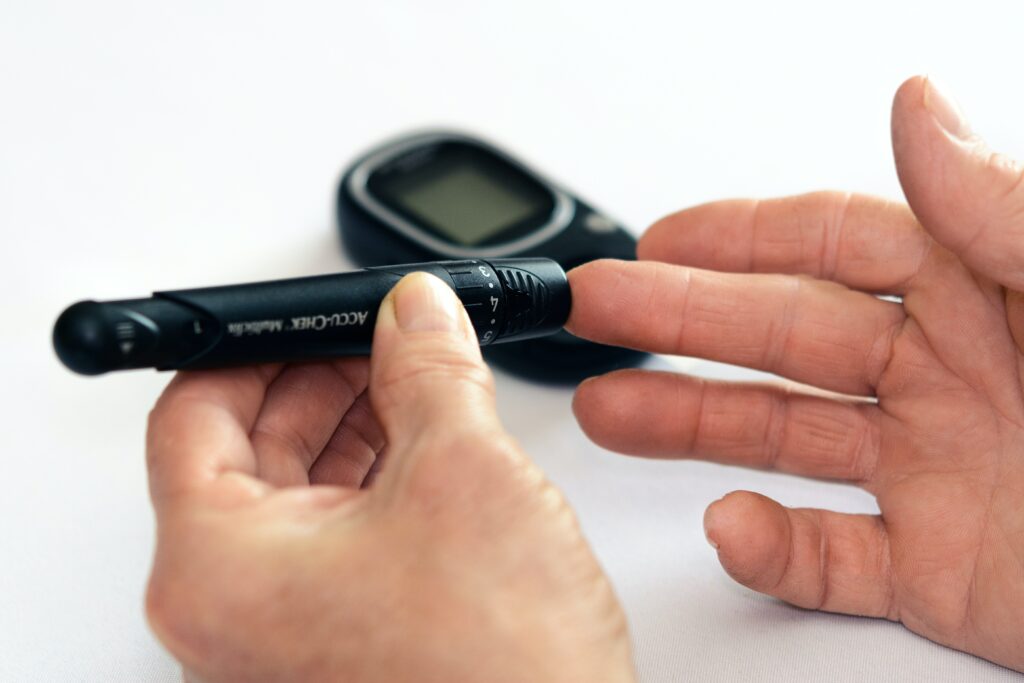Type 2 diabetes is characterized by two physiological issues: resistance to insulin produced by the person’s beta cells and insufficient insulin synthesis compared to the required amount. These issues can result in high blood sugar, which can lead to various consequences such as heart disease and stroke, retinopathy, and neuropathy over time.

Understand that getting type 2 diabetes is not a personal shortcoming.
It evolves due to several elements still being discovered and better understood. Lifestyle factors (diet, exercise, stress, and sleep) are important, but genetics also play a role. Type 2 diabetes is frequently portrayed in the media due to being overweight, although the relationship is more complicated. Many overweight people do not develop type 2 diabetes, while some people who have type 2 were never overweight. Type 2 diabetes treatments, including a healthy eating plan, regular exercise, and blood-glucose-lowering medicines, target insulin resistance and the relative shortage of insulin to control blood glucose levels. The journey from normal glucose levels to prediabetes and eventually to type 2 diabetes can generally take five to ten years.
Taking care of your diabetes as soon as you are diagnosed (and before) will benefit you both now and in the long run.
Type 2 diabetes is not a death sentence by any means, but it is a serious disease that requires immediate attention. Ignoring it may not appear to have significant short-term consequences (chronic high blood glucose levels are not painful), but it can damage your nervous system, blood vessels, eyes, heart, and kidneys over time. Even a small percentage of persons with prediabetes were found to show indications of ocular illness in the landmark Diabetes Prevention Program trial (retinopathy). Managing your blood glucose levels and other health risk factors (e.g., cholesterol, blood pressure, and weight) is critical for avoiding severe consequences. Even a small amount of weight loss and maintenance can improve glucose control and have other therapeutic effects (read more tips on managing diet and exercise below for more on weight loss). Keep in mind that better diabetes control will benefit you in the here and now — high glucose levels have a negative impact on your mood and energy levels.
What is the proof? The landmark UKPDS trial monitored 5,102 newly diagnosed type 2 diabetes patients for an average of ten years to see if heavy use of blood glucose-lowering medicines resulted in health benefits. Tighter average glucose control (A1c of 7.0 vs. 7.9 %) lowered the rate of microvascular problems (which harm the eyes, kidneys, and nervous system) by 25%. In addition, there was a 25% reduction in diabetes-related fatalities, a 7% reduction in mortality, and an 18% reduction in combined fatal and nonfatal heart attacks for every percentage point decrease in A1c (e.g., 9% to 8%).
Recognize that type 2 diabetes is a chronic condition that worsens over time.
When persons are diagnosed with type 2 diabetes, they have already lost up to 50% or more of their beta cell function (the cells in the pancreas that produce insulin). They are usually insulin resistant, which means they can’t utilize the insulin they produce properly. A few patients can initially manage their diabetes with a healthy diet plan and exercise. However, beta-cell function declines over time, making blood glucose management more difficult. People often need to add one or more drugs to maintain blood glucose control. The good news is that there are now many more options, and many of these drugs do not induce as much hypoglycemia, hunger, and weight gain as in the past (e.g., metformin, pioglitazone, DPP-4 inhibitors, GLP-1 agonists, SGLT-2 inhibitors, and better insulin). You need to utilize additional and various medications that do not imply that you are a failure. Early on, Diligent care can help preserve remaining beta cell function and delay development — another reason why acting early and forcefully is critical.
